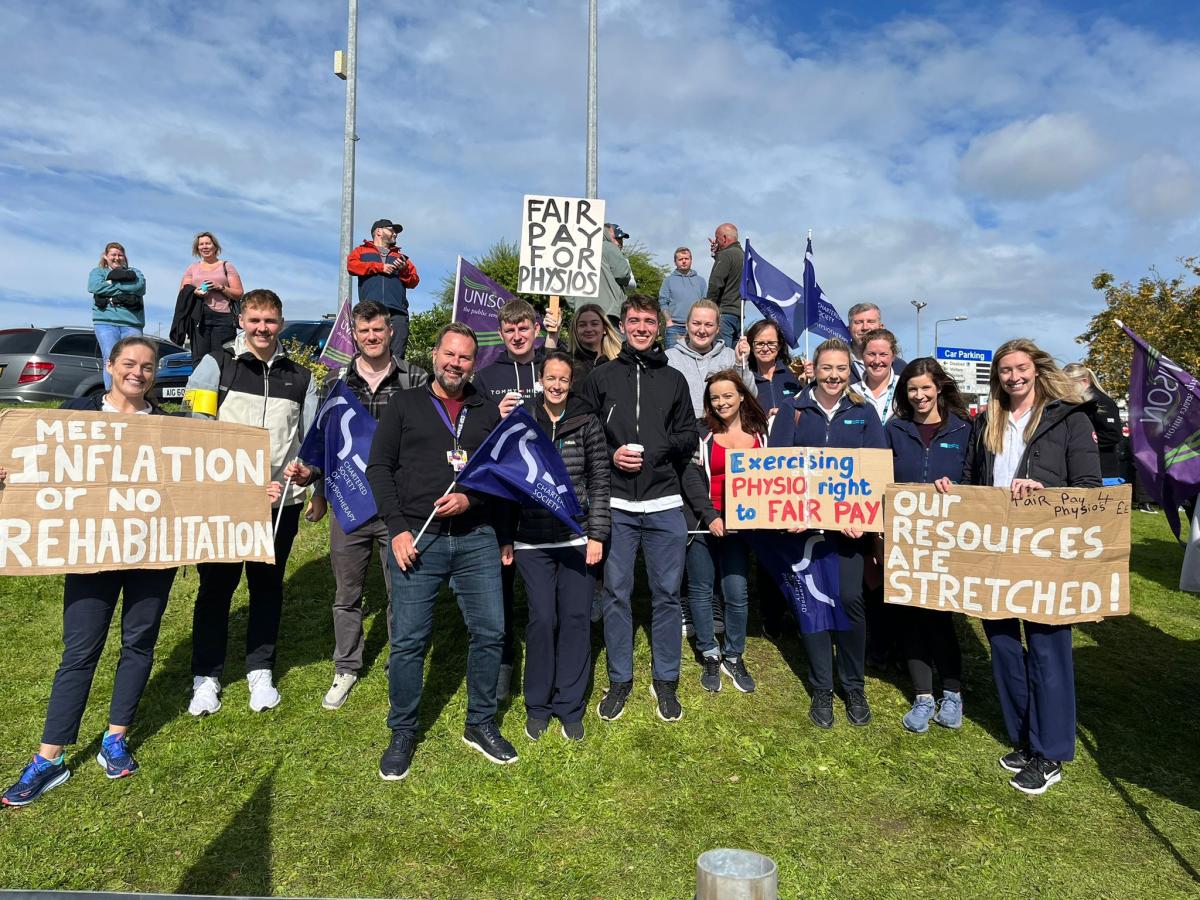Claire Sullivan, CSP director of employment relations and union services, looks back at our historic year

A year ago this month, we opened a formal ballot for industrial action for members in NHS Scotland.
Since then, we have successfully secured mandates for industrial action in all four UK nations, despite some of the most stringent anti-union legislation in the world.
Is your data 'strike ready'?
One of the toughest challenges to run a legally secure industrial action campaign, is the requirement for unions to disclose accurate membership figures to employers at several stages of a strike campaign.
To put us on our best footing for any future action – and to ensure we provide collective union support to you in your workplace – all members should check and update their details on a regular basis.
We formally balloted nearly 28,000 members UK-wide, with over 15,000 responding to our postal-only votes – representing a threshold-smashing ‘national turnout’ of 55 per cent. In order to have our pay campaigns shaped by members, we’ve also run a number of online consultative ballots, as new pay offers and developments were put to health unions.
And of course, members in England and Northern Ireland took the momentous decision to take strike action for the first time in the profession’s history over the issues of pay and retention. Members going to the brink in Wales and Scotland saw us secure improved pay offers that were put to – and approved by – our members.
We haven’t achieved everything we’d want. Our members are still underpaid and overworked, particularly in Northern Ireland where our Health and Social Care-employed members remain the lowest paid public sector physios in the UK.
But, our members’ actions have won real concessions on pay, and commitments to review a number of non-pay measures, including initiatives to tackle violence and aggression against staff; and better support for career development and progression.
Our members have collectively stood up for their profession at work and in the news. We saw unseen levels of workplace- and digital-engagement and organising around pay.
The challenge now is to keep the pressure up on pay; and to channel this collective power that we grew, to address other difficulties that physiotherapy staff face across the UK. We are hearing an increasing number of stories on the loss of space, lack of staff resources, and unfavourable contract changes.
CSP activists can build on their learning and experiences of industrial action, to engage members locally, and to tackle these issues together. There is a huge opportunity to harness the current strength of feeling of members and we must continue to use it.
See how you can get involved in organising and campaigning on workplace issues
Number of subscribers: 2
